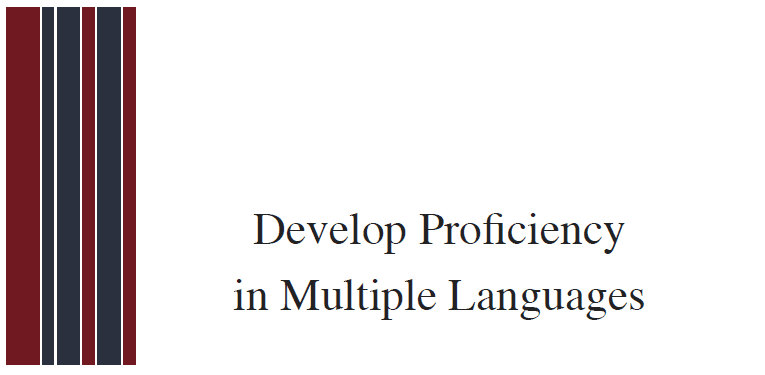- Ensure students achieve high levels of fluency in one or more foreign languages through immersive and comprehensive language training.
- Focus on all language skills (speaking, listening, reading, writing) across different contexts (formal, informal, professional).









